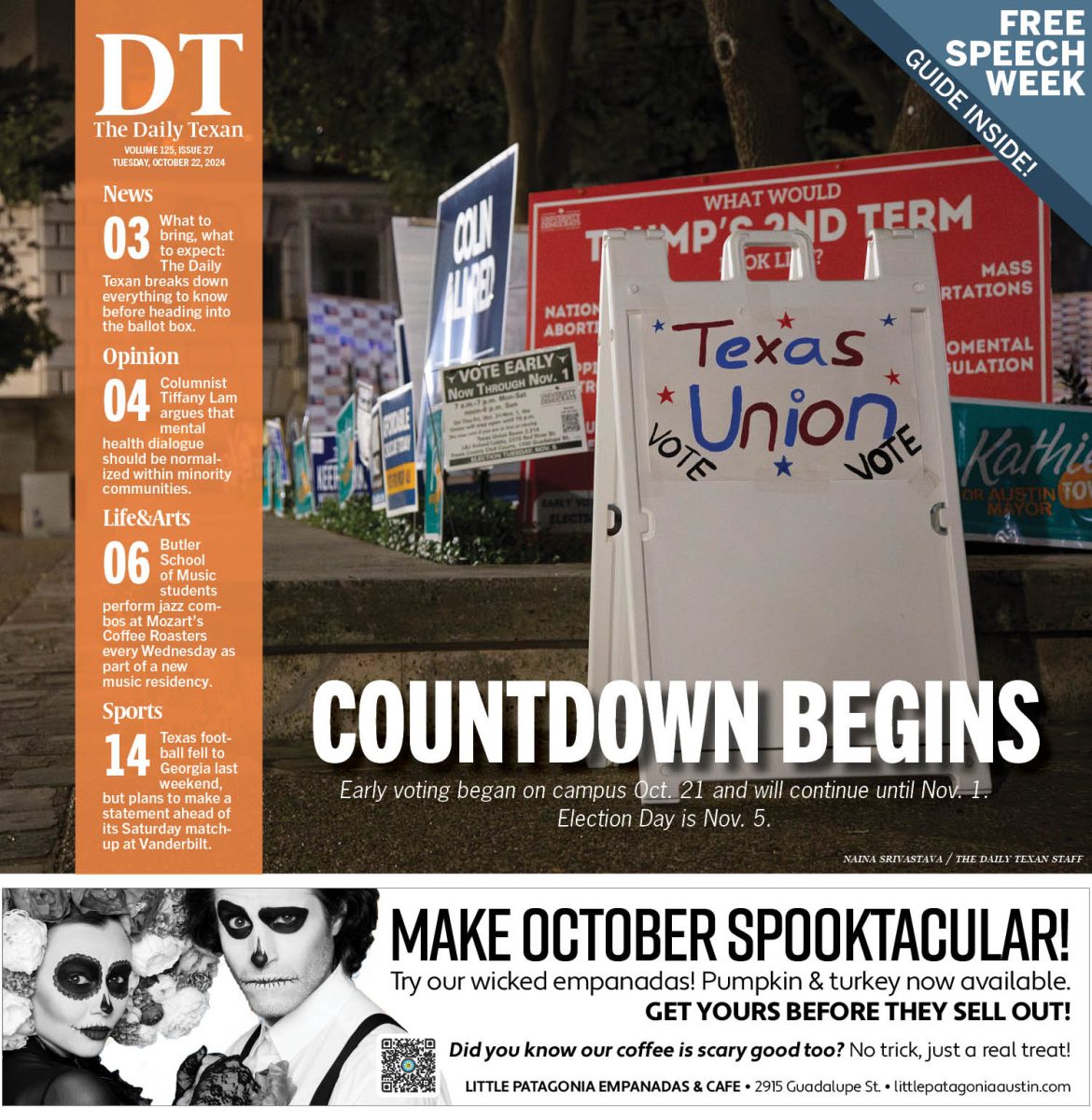Special Project: A ‘Toothless’ Ordinance
October 31, 2017
Cecilia Melchor and her friend were searching for a good time as they spent a couple hours hopping from bar to bar on Sixth Street a few weeks ago. Eventually, the pair wound up at The Chuggin’ Monkey close to midnight.
It was Melchor’s first time out on Dirty Sixth, but the night turned sour in less than 10 minutes.
While her friend waited at the bar, Melchor, a transgender woman, was exiting the women’s restroom when the bouncer stopped to ask a question she’s never had to answer: “What sex are you?”
“I was kind of taken aback,” said Melchor, a physics junior. “I couldn’t believe he would just blatantly ask me that question.”
After Melchor said the line of questioning was discriminatory and illegal, the bouncer told her to exit the bar because she was “causing a scene.” By this point, she had taken out her phone to record the exchange. She eventually left, her night ruined, and returned home exhausted and drained.
Two weeks later, Melchor filed a claim under the city’s nondiscrimination ordinance, which protects Austin residents from being discriminated against in public accommodations, such as bars.
Melchor said she hopes the city will see her video evidence and take her side, and she said her lawyer believes she has a good case.
The Ordinance
The numbers, however, are not in her favor. Out of the 32 cases filed over the past five years, the city has never sided with a complainant and taken the accused party to court under its nondiscrimination ordinance, according to city data. The majority of claims ended with a finding of no discrimination by the accused party. The ordinance covers discrimination based on race, color, disability, religion, sex, national origin, sexual orientation, gender identity and age.
The Daily Texan asked for numbers dating back to 2004, when the ordinance was expanded to protect those discriminated against based on their gender identity, but was denied. The paper filed an open records request and is still waiting on this information.
Gail McCant is an administrator for Austin’s Equal Employment and Fair Housing Office, which enforces the ordinance and relevant federal discrimination statutes. She said the disparity among outcomes exists because there may not be enough evidence to tip the scales to the complainant’s side during an investigation.
“There’s not enough evidence there to determine that the respondent engaged in any illegal behavior,” McCant said.
After speaking with other LGBTQ people who have experienced similar cases of discrimination, Melchor said her hope that the city will come to her aid has dimmed. She said she’s beginning to see the “toothless” ordinance as protection in writing that is not effective in curbing discrimination.
“We have the protection in writing, but the city doesn’t stand up for us, at least not the way it should,” Melchor said. “It makes situations like these fall on the individual’s shoulders as well as the community as a whole, which is extremely unfair to us and provides no sense of ramifications to those who violate laws and abuse our community.”
McCant said the disparity may also exist because investigators are continuously trying to bring both parties together to settle the dispute in what’s called a conciliation agreement. Sometimes, when there is reasonable evidence that discrimination did occur, the accused party is more willing to settle the case before going to court.
But only three cases over the last five years have resulted in a conciliation agreement.
As of press time, The Chuggin’ Monkey management has not returned requests for comment on this story.
More than 60 percent of trans people have avoided using the restroom aligning with their gender identity in the past year because they were afraid of being discriminated against, according to a nationwide survey released earlier this year from the National Center for Transgender Equality.
Trying to figure out which bathroom to use is a decision unique to many trans people in avoiding discrimination or physical altercations, Melchor said.
“The statistics don’t lie, that stuff adds up,” Melchor said. “I’m trying to not be a statistic here.”
Melchor said she is still seeking legal advice as she continues with the city’s ongoing investigation. For now, all she can do is wait and hope the city will eventually choose her side.
“We’re just people,” Melchor said. “All we need to do is pee.”



